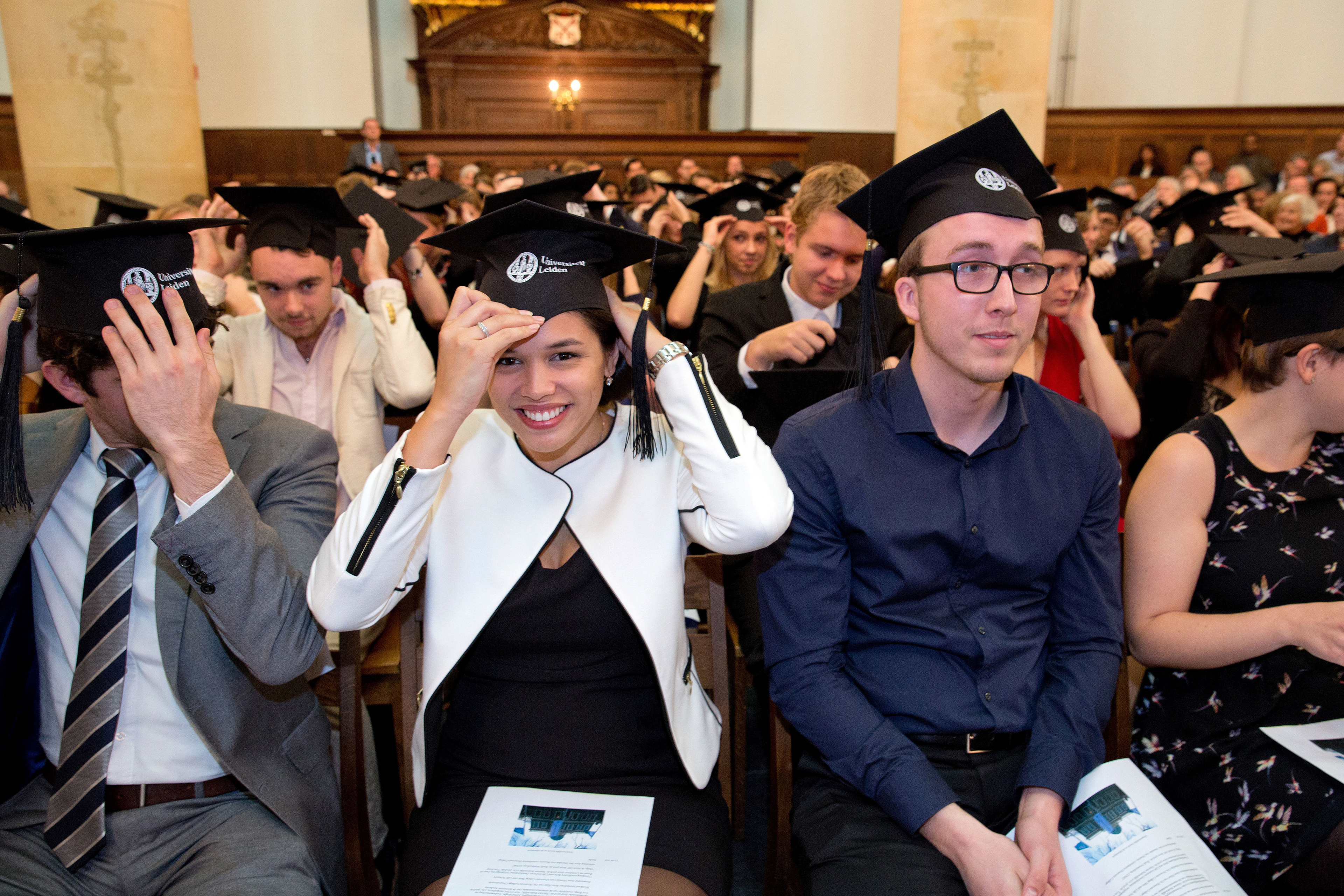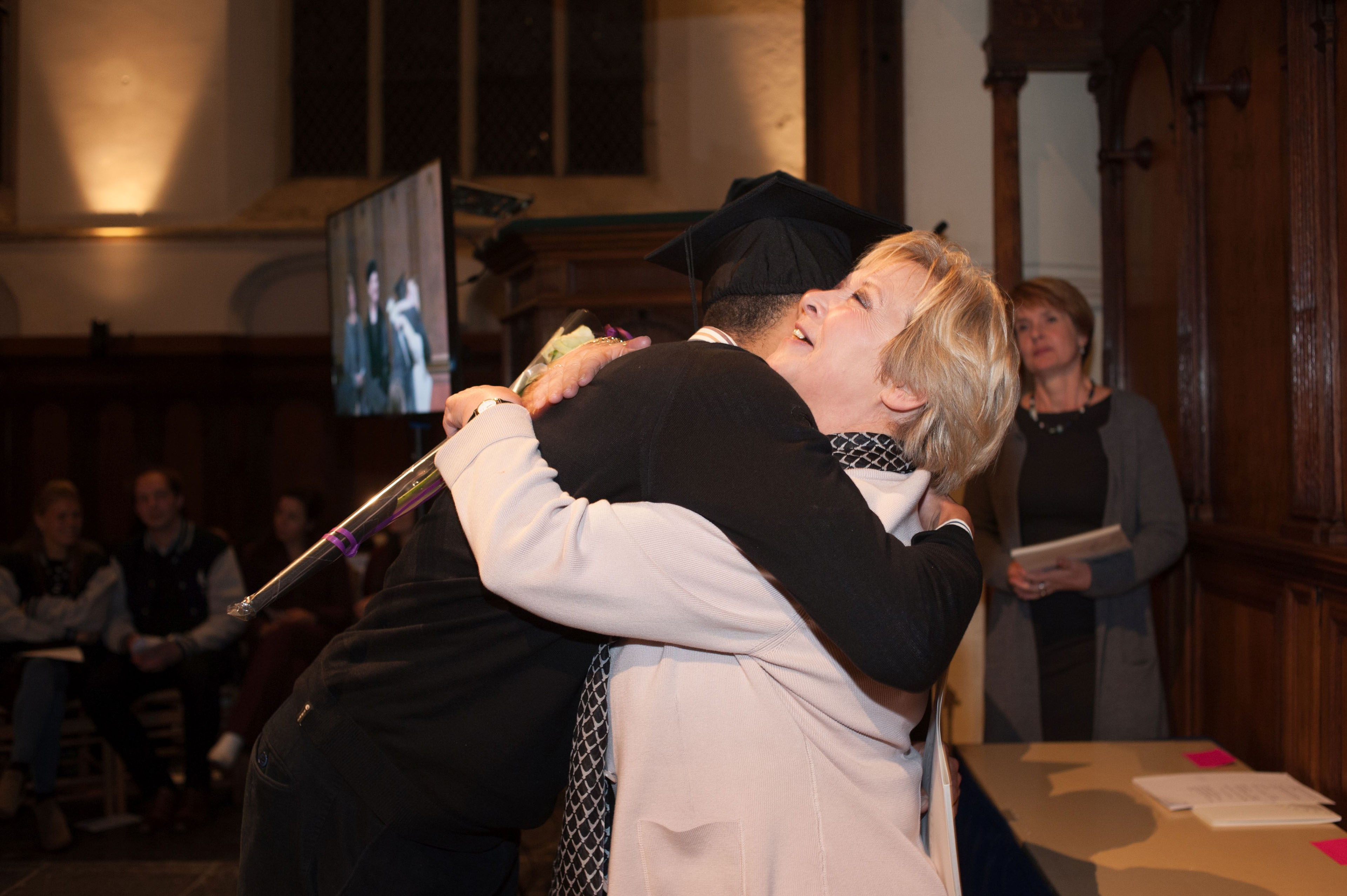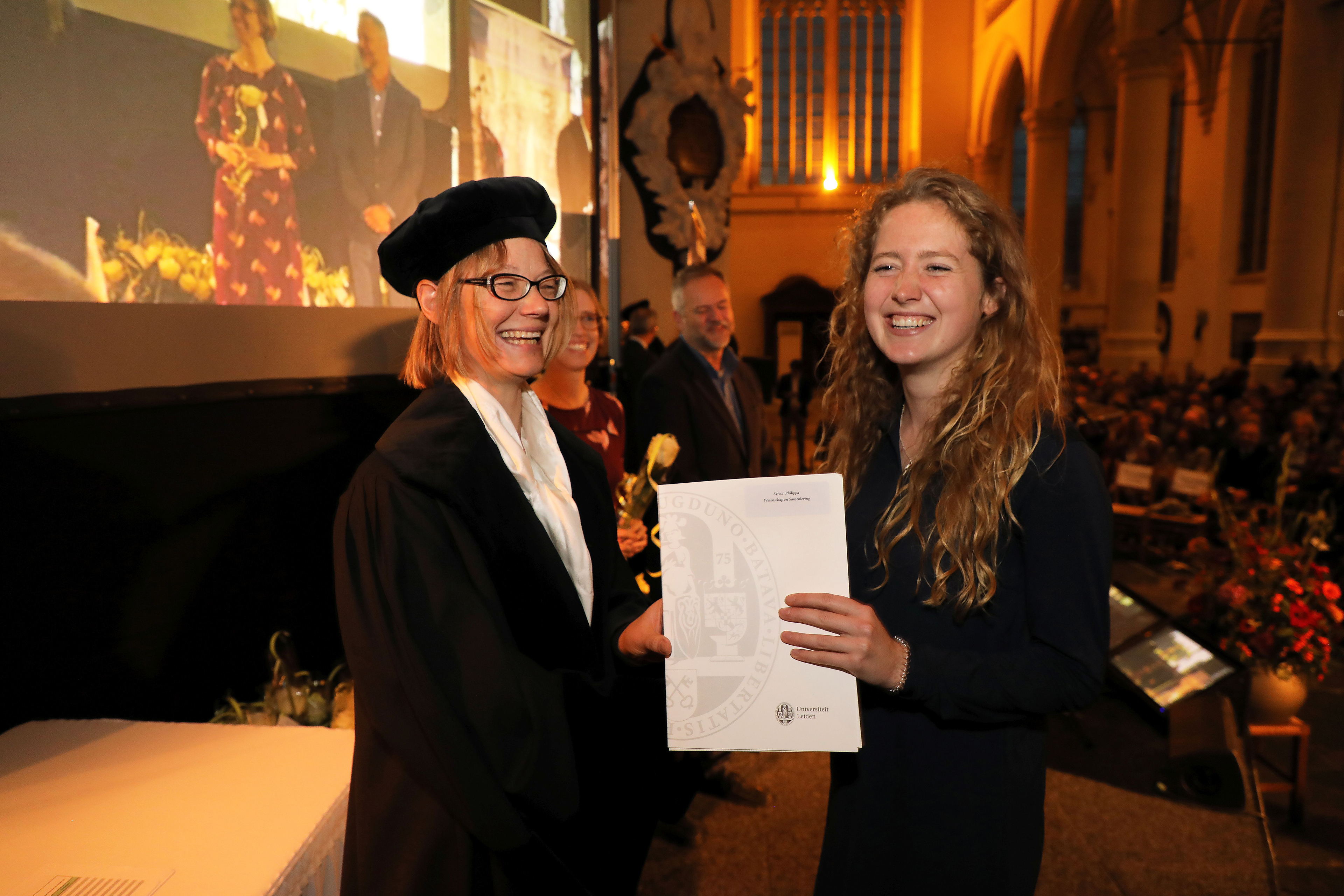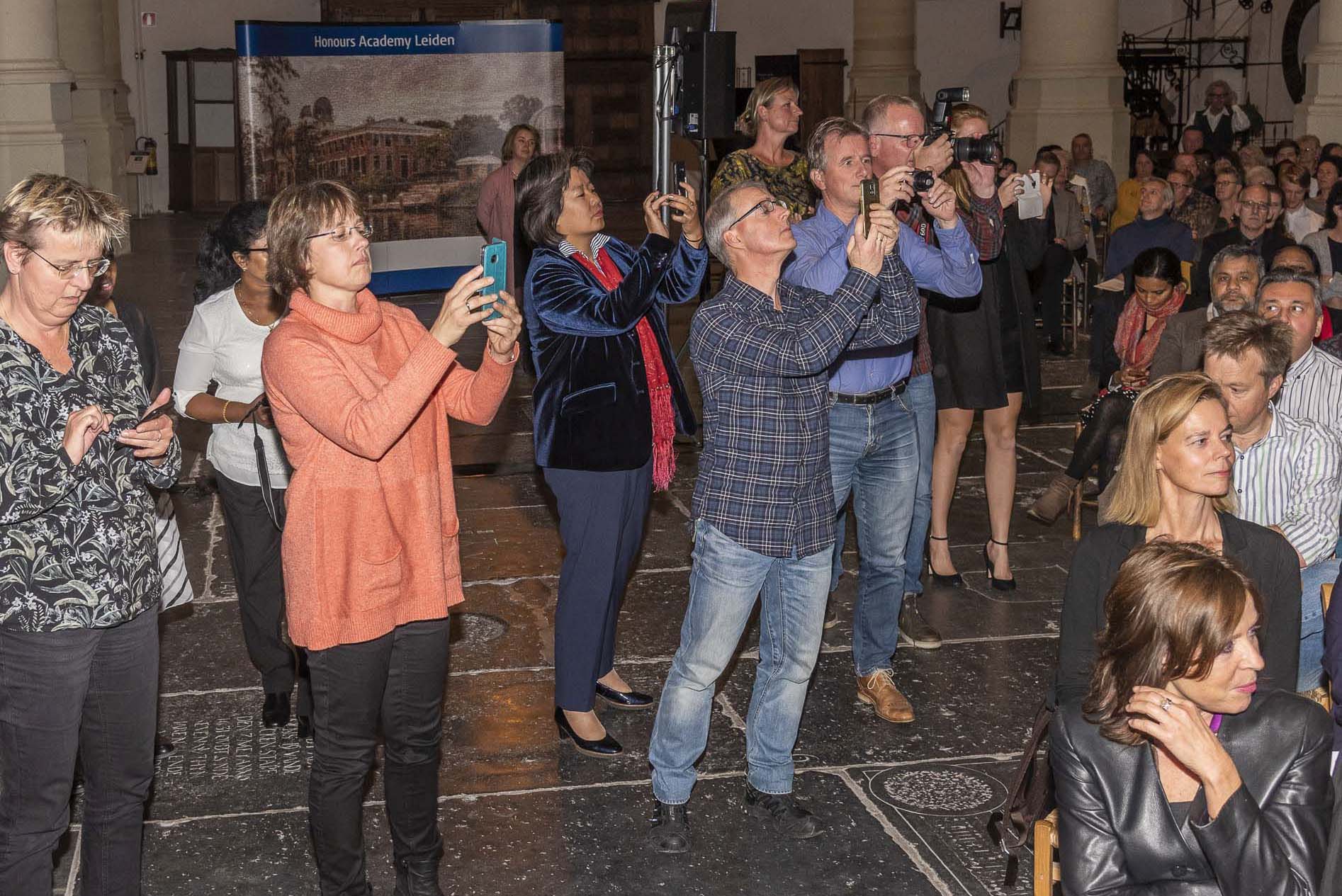
1575th student receives Honours College certificate
On the eve of Leiden University’s 450th anniversary, the 1574th and 1575th Honours College students received their honours certificates. In a crowded Scheltema, people celebrated ‘that so many students have had the opportunity to broaden their horizons.’
Speeches, thank-yous, drinks: each year, the Honours College certificate ceremony is a festive event. Over three hundred students celebrate completing their honours programme – 30 EC extra credits on top of their bachelor’s studies.
450th Anniversary
But this year, the ceremony was just a bit more special than usual. Centuries after Leidens Ontzet (1574) and the founding of Leiden University (1575), the 1574th and 1575th Honours College students received their certificates. Isabella Wilhelm and Casper de Boer, psychology students from the Honours College Science, Society and Self, were the lucky ones. As symbolic representatives of eleven generations of honours students, they each received a bouquet of flowers.

Casper thinks it’s ‘very special’ to celebrate the university’s 450th anniversary. ‘I think we’re the oldest university in the Netherlands.’ For Isabella – originally from the United States and a resident of Leiden since five years – it was an experience to remember. ‘We don’t have anniversaries like this in the US. It’s cool to see everyone so excited.’
Curiosity and motivation
In Leiden University’s 450-year history, the Honours College as we know it shows up relatively late. There had already been initiatives for extracurricular and interdisciplinary education, but it wasn’t until 2012 that the Honours Academy was founded to coordinate honours education university-wide.
Students step outside the walls of their programme, faculty and university
Eline Bergijk, Director of Education at the Honours Academy, remembers it well. At the time, she was an honours coordinator at Bèta and Life Science. ‘That first year involved a lot of pioneering, both for students and teachers. But it was incredibly fun. I really built a bond with those students.’ In the following years, student numbers grew, and the seven Honours Colleges – one per faculty – began to collaborate more closely. ‘To the point where three faculties now jointly develop an honours course.’
Over time, the Honours College became increasingly accessible. Curiosity and motivation became more important selection criteria; some faculties even waived grade requirements entirely. If there’s anything to celebrate after 1575 certificates, it’s ‘that so many students have had the chance to broaden their horizons’, thinks Bergijk. ‘Beyond the walls of their programme, their faculty, and the university.’
Honours College in images: 1575 certificates in 8 photos
-

2014: Students frolic with graduation hats. Photo: André van Haasteren -

2016: A student hugs his honours coordinator. Photo: Eelkje Colmjon -

2017: Vice-rector Hester Bijl hands out honours certificates. Photo: André van Haasteren -

2018: Parents take photos during the certificate ceremony. Photo: Buro JP -

2019: Students throw their graduation hat into the air. Photo: Buro JP -

2020: Students obtain their certificate through an online escaperoom. -

2022: Honours College Medicine students take a photo. Photo: Buro JP -

2024: Students toast to achieving their honours certificate. Photo: Eric van den Bandt
Learning in practice
What does this ‘broad development’ look like in practice? Honours students Casper and Isabella don’t need to think long and mention the project they did at ‘Learning in the City’ – a platform connecting students in Leiden to organisations that address local societal challenges. Organisations learn from the students, who, in turn, gain practical experience.
'If you think something needs to be done, you can do it'
For instance, Isabella and fellow students researched how the city of Leiden could improve the safety of parks. They found that lighting, in particular, contributes to residents’ sense of safety. Isabella learned that, as a scientist, you can have a meaningful impact on your immediate environment. ‘And if you think something needs to be done, you can do it.’
'You can really make new friends'
Learning in the City was valuable for another reason, too, Casper adds. ‘We really connected with the local community – actually, honours opens you up to a more diverse network as a whole.’ Isabella agrees: ‘You meet people you wouldn’t meet otherwise. During my bachelor’s, I was closest with people that did honours.’

Alexa de Groot, student board member at the Honours Academy and an honours student herself, hears that often. ‘You’re a bit in a bubble within your own bachelor’s programme. Through honours, you meet students from other countries and disciplines. You can really make new friends.’
Despite her involvement in honours, Isabella never felt different from other students. ‘I just wanted to do something extra: explore other disciplines, have discussions. Honours College definitely gave me that.’
About the Honours Academy
The Honours Academy offers students at vwo, bachelor and master level opportunities for extra development on top of their regular education. The Honours College (30 EC) is the largest honours programme in terms of student numbers and study load.
Honours education is interdisciplinary and outside-the-box: students from different programmes learn from each other and work with organisations outside the university.
For teachers, honours education is a testing ground where they can experiment with innovative education. Last year, the Honours Academy celebrated its 10th anniversary.
Text: Michiel Knoester
Photos: Buro JP
